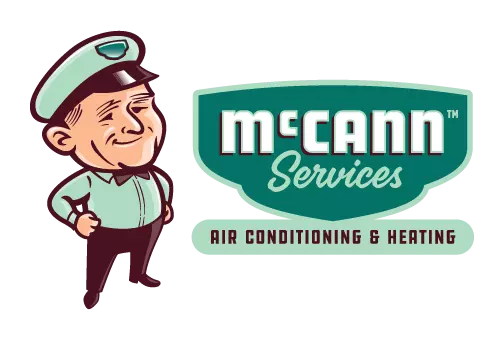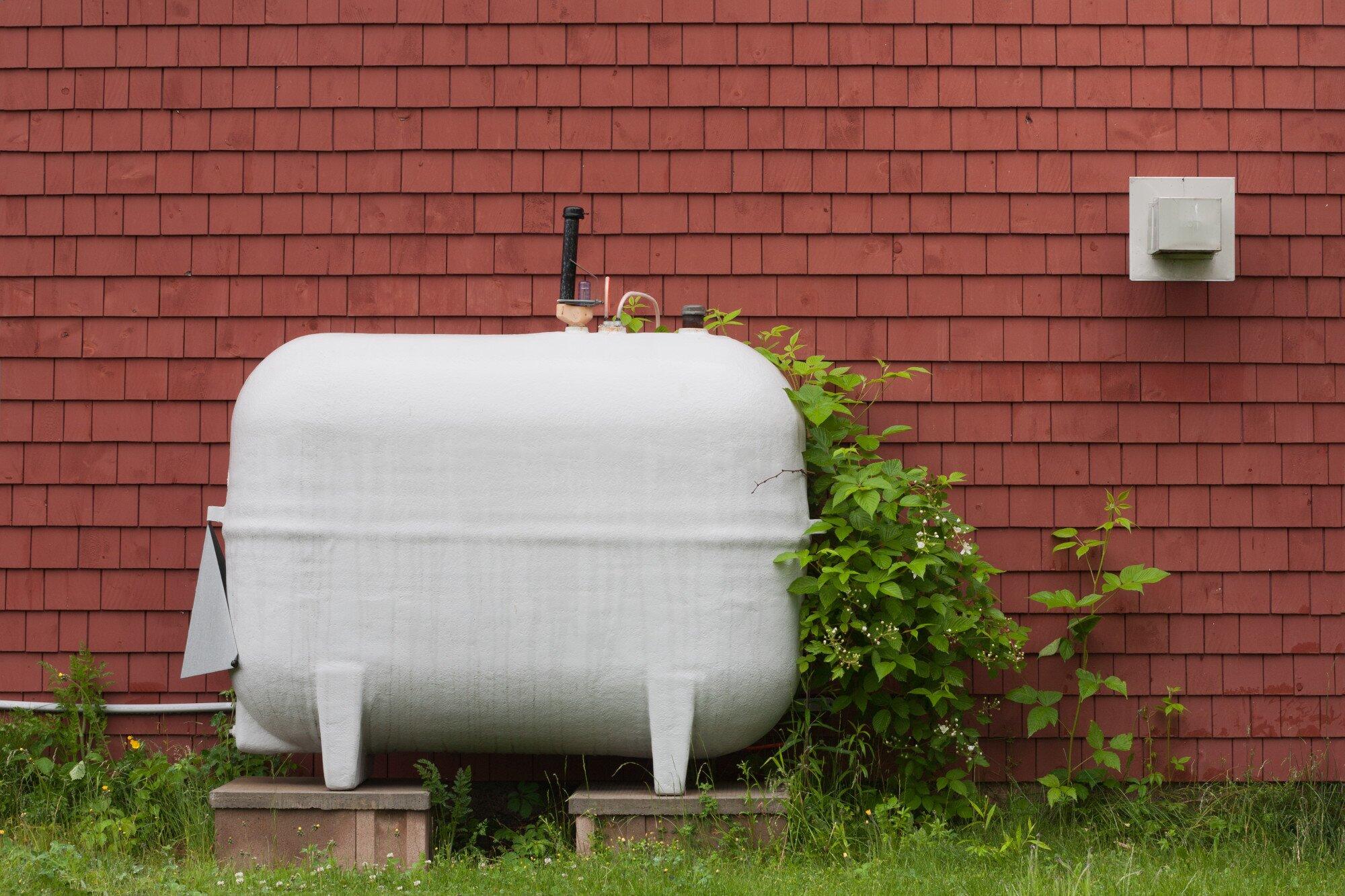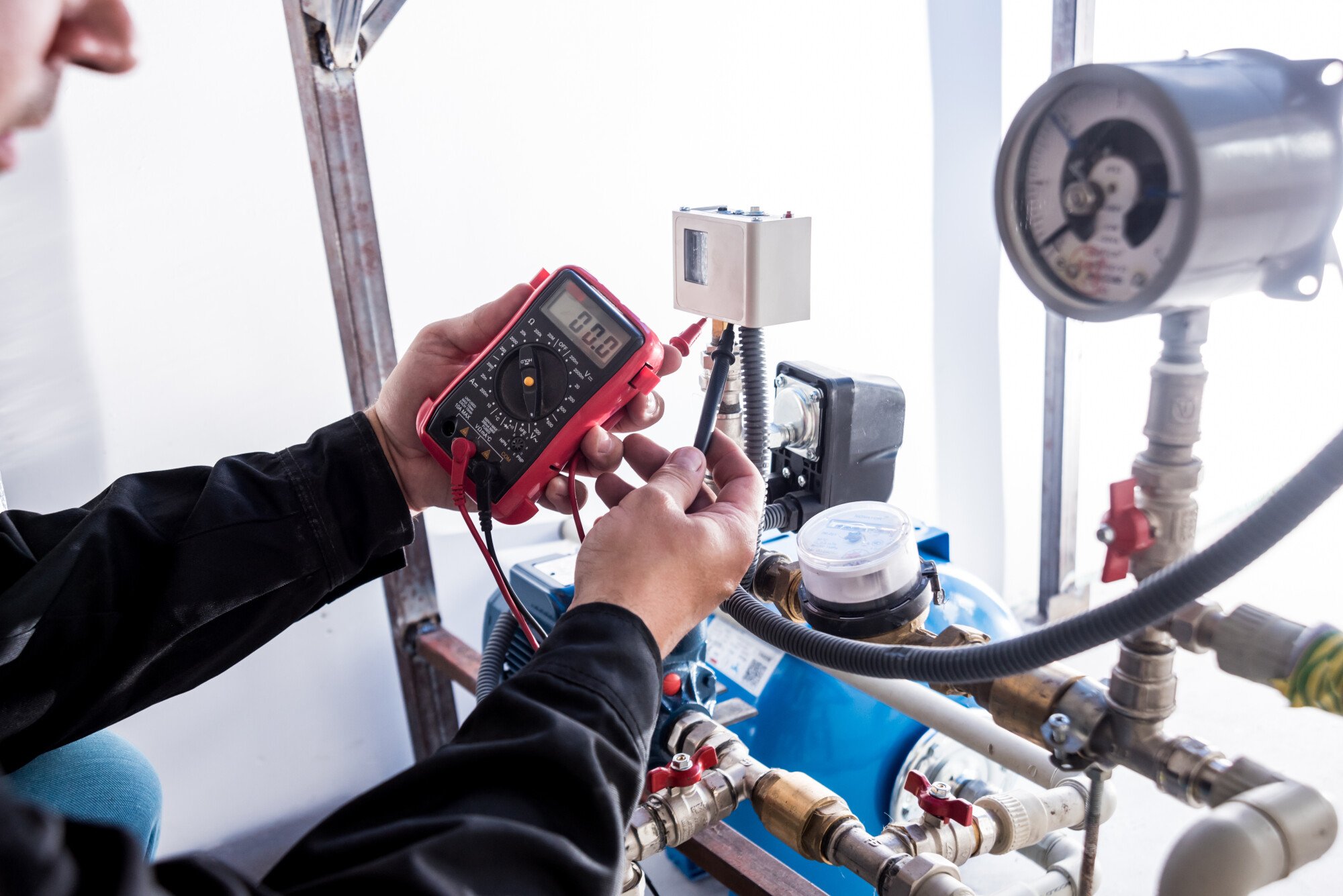Why Your Old AC Unit Has to Go: Advice for Bellaire, TX Homeowners
In March 2022, temperatures near Antarctica spiked 70 degrees Fahrenheit above normal, highlighting our climate's growing unpredictability. For Bellaire, TX homeowners, this is a wake-up call. Relying on an old AC unit in such erratic weather can compromise your comfort and safety.
This guide will show you why it's critical to upgrade to a new, efficient air conditioning system. We'll explore the best types of AC units that match Bellaire's climate, ensuring your home remains a cool sanctuary against the heat.
Worsening Energy Inefficiency
Modern heating and cooling products, particularly ductless mini-split systems, are revolutionizing comfort in Bellaire, TX homes. These systems are a testament to technological advances, offering unparalleled energy efficiency. Their secret lies in targeted cooling and heating, eliminating the energy loss associated with traditional ductwork.
With impressive SEER (Seasonal Energy Efficiency Ratio) ratings, they optimize energy use. Hence, ensuring your home remains cool with minimal electricity. This efficiency leap means you save money on energy bills.
Declining Indoor Comfort
Variable-speed fans and advanced refrigerant technology provide steady temperatures, better humidity control, and enhanced air quality in your home. Spring in Bellaire is not only about beautiful blooms; but also the peak season for allergies. This makes spring the ideal time for an indoor air quality assessment.
As plants release pollen, your home's air quality can impact how you experience allergies. Moreover, spring cleaning stirs up dust, pet dander, and other particulates that have settled over the year, affecting your indoor air.
Assessing your air quality this season can help identify and mitigate these irritants. Thus, ensuring your air is not only cool but also clean and allergen-free.
Escalating Repair Costs
Avoid the financial strain and inconvenience of constant repairs by upgrading to a new AC system. As your old unit gets older, searching for AC repair near me becomes more common. This leads to costs increasing and the risk of a major breakdown is always present.
Choosing to install a new AC unit is not just about staying cool; it's about ensuring cost-effective peace of mind. Furthermore, many services offer an AC repair free estimate, simplifying the decision to upgrade.
In Houston, signs that you need to hire furnace repair services include uneven heating, odd noises, or escalating energy bills. These are all clear indicators that your system requires professional care.
Environmental Hazards
The transition from R-22 refrigerant to R-410A in modern air conditioning units signifies a leap towards more sustainable living. This eco-conscious choice not only lessens the impact on the ozone layer but also reduces the carbon emissions associated with cooling your home. Beyond the significant environmental benefits, there's a personal health advantage to consider.
By minimizing indoor air pollutants through regular heating and air conditioning maintenance, these advanced systems contribute to a healthier indoor environment. Regular maintenance ensures that your HVAC system operates efficiently. This filters out pollutants and allergens that can compromise air quality.
This proactive approach conserves the environment. It also shields you from various health issues related to poor air quality, such as respiratory problems, allergies, and other airborne diseases.
Shortened Equipment Lifespan
Invest in the future of your home's comfort with a new, energy-efficient AC unit. These next-gen innovations promise longer AC unit lifespans and reliable cooling that lasts.
Gone are the days of worrying about your air conditioner leaking or frequent calls to AC companies for emergency repairs. With advanced technology, newer models work smarter, not harder, to keep your space cool. This translates to fewer breakdowns and a longer life for your system.
Increased Operational Noise
Upgrade to tranquility with a modern AC unit. Today's models whisper, transforming your home into a peaceful haven away from the harsh sounds of older, groaning systems. But silence isn't just golden; it's also safer.
A whistling furnace not only irritates but also may signal serious issues, such as dangerous gas leaks or failing bearings. You should not ignore these AC unit issues. Hiring a qualified HVAC technician is crucial; they have the expertise to decipher these sounds. Thus, ensuring your family's safety and comfort.
Don't let a whistling warning turn into a full-blown emergency. Addressing these signs can mean the difference between a simple fix and a costly, hazardous problem.
Decreased Property Value
Boost your home's market appeal by upgrading your AC system. This is not only about achieving a cooler indoor climate; but also an investment that speaks volumes to potential buyers. A modern AC system signals to house hunters that your property is well-maintained, equipped with efficient technology, and ready to provide immediate comfort.
This upgrade can be a deciding factor for buyers, often resulting in a higher selling price. In today's market, where everyone is looking for value, a new AC system is a clear sign your home is a cut above the rest, raising its value and desirability.
Lack of Warranty Security
Embrace the confidence that comes with new AC installations and their accompanying warranties. This isn't just about cooling your space; it's about securing your investment against the unexpected. With a warranty in hand, you're installing an AC unit. Hence, laying a foundation of reliability for years to come.
Should any issues arise, you're covered, ensuring that malfunctions won't disrupt your comfort or your wallet. This level of protection brings tranquility that only homeowners who choose with foresight can appreciate. It's more than an appliance; it's a safeguard for your home's future comfort and your peace of mind.
Don't Wait for Your Old AC Unit to Reach the Verge of Collapse
In Bellaire and surrounding areas in TX, staying cool is about more than just comfort. It is about finding a dependable climate control partner for your home. Choosing to replace your old AC unit with McCann Services turns this task into a positive experience. Our legacy of excellence, built over decades, ensures you receive top-notch service.
Our skilled technicians are at the forefront of providing superior heating, cooling, and air quality solutions. Elevate your home's comfort and efficiency with a team that cares. Don't wait for the next heatwave, reach out to McCann Services today in Bellaire, TX for unparalleled service.
Comparing Heating Fuel Options in Houston, TX: Propane, Natural Gas, and Electric
Winter in Houston brings relief from the intense heat and humidity of the summer months. January officially ranks as one of the coldest months in the area. As the temperature drops, your heating system must be able to handle these dips in temperature.
If you are interested in comparing different heating fuel options, we have you covered. This article compares different fuel options and gives you insight into the pros and cons of propane, natural gas, and electricity. Keep reading to stay warm during a cold winter.
Comparing Heating Fuel Options
In Houston, where winters are relatively mild compared to colder regions, the choice of a heating system depends on factors such as efficiency, cost-effectiveness, and personal preferences.
Propane Fuel
Propane is known for its high energy efficiency due to having a high heat output when burned. This converts to lower energy bills for consumers, making it an attractive option as a heating solution.
It is commonly used for heating:
-
Homes
-
Water heaters
-
Stoves
-
Ovens
-
Grills
Pros and Cons of Using Propane
Propane is energy efficient, making it a good option for heating systems and appliances.
Propane appliances are generally easy to use and provide instant and precise control over the level of heat. This offers users convenience and flexibility.
Propane users often have on-site storage tanks, providing independence from utility grids. This can be advantageous during power outages or in areas where natural gas infrastructure is not available.
Propane is considered a clean-burning fuel. It creates less greenhouse gas emissions than some other fossil fuels, contributing to better air quality.
Propane is widely available, with many fuel providers across the United States. Additionally, it has a long shelf life and does not degrade over time.
In some cases, there are government incentives or rebates for using propane. This can include things such as using environmentally friendly applications like propane-powered vehicles or energy-efficient appliances.
Propane performs well in cold weather conditions, making it a reliable source of energy for heating during colder temperatures. A higher grade of fuel may offer the best efficiency.
The price of propane can be subject to market fluctuations that can influence your heating expenses.
Propane users need on-site oil storage tanks, which may require space on the property. Installing and maintaining these tanks can be an additional consideration.
While propane is considered cleaner than some fossil fuels, it is not a renewable energy source. Propane is a flammable gas, and in rare instances, leaks can occur. Proper safety measures are essential to mitigate this risk.
The initial cost of purchasing propane-powered appliances or converting existing systems may be higher compared to some electric options.
Natural Gas
Natural gas is a common heating fuel in urban areas, including Houston. It is delivered through pipelines and does not need on-site storage. Natural gas heating systems are well known for their reliability and cleanliness.
Pros and Cons of Using Gas
Natural gas is often cheaper than other heating options, which can help you save on your energy bill.
Natural gas furnaces are generally more efficient than some other heating systems, providing effective warmth without wasting too much energy.
Natural gas provides a dependable source of energy, and you won't face disruptions in supply like you might with some renewable sources. Natural gas heats up quickly, providing a rapid response to temperature adjustments.
While natural gas is considered cleaner than some other fossil fuels, it still contributes to carbon emissions and isn't as environmentally friendly as renewable energy sources.
Natural gas is a finite resource, and its extraction and use contribute to the depletion of non-renewable energy sources.
Natural gas prices can also be subject to fluctuations, and this may impact your heating costs.
There's a risk of gas leaks, which can be hazardous. It's crucial to have proper ventilation and regularly maintain heating systems to ensure safety.
Electric Systems
Electric heating systems are used in many homes. While electric heating may be more common for smaller spaces, it's essential to consider the overall energy efficiency.
Pros and Cons of Using Electric Heating
Electric heating systems produce no on-site emissions, making them environmentally friendly and contributing to better air quality.
Electric heating systems generally have fewer safety concerns compared to some other heating methods, as there is no combustion involved.
Electric heating systems are often easier to install and can be used in various settings, making them suitable for different types of homes.
Electric heating systems typically require less maintenance compared to some other heating systems, reducing long-term costs.
Prices can be higher than the cost of natural gas, which might result in higher heating bills.
Electric heating systems rely on the power grid. Power outages can disrupt heating, though this might be less of a concern in Houston.
The environmental impact depends on how the electricity is generated. If the electricity comes from non-renewable sources, it might still contribute to carbon emissions. Electric heating systems might take longer to heat a space compared to some other systems.
Key Considerations for Choosing the Best Option
You have done your research and understand the pros and cons of the above-mentioned fuel options. Before making up your mind, consider the following:
Consider the cost of:
-
Initial installation or conversion costs
-
Ongoing fuel prices and supply stability
-
Maintenance and repair expenses
-
Availability and cost of equipment
Evaluate these carefully:
-
Energy efficiency
-
Environmental impact of product
-
Local climate demands
-
Home size and layout
-
Fuel storage requirements
-
Local regulations
-
Health and safety considerations
-
Ease of use
Heating Fuel: Informed Decisions
Ultimately, the best heating fuel options for your Houston home depend on your specific needs. Consulting with a local HVAC professional can help you make an informed decision. They can assist with oil tank placement, assessment of your space and installment and maintenance of your new system.
For expert heating solutions in Houston and Bellaire, TX, look no further than McCann Services. We are trusted cooling and heating experts with extensive experience in providing the correct advice and products to our clients. Contact us today to find out how we can help you stay warm in Houston this winter.
Is a Whistling Furnace Dangerous? A Guide for Houston, TX Homeowners
According to the Department of Energy (DoE), residential gas furnaces account for about 19% of annual residential energy consumption in the U.S. Given their significant energy consumption, homeowners should understand and address any issues with their gas furnaces, including whistling noises. But is a whistling furnace dangerous, and what does this mean?
Your furnace shouldn't produce loud or disruptive sounds. If you notice unusual noises, the furnace may require attention. Ignoring this issue could lead to more significant damage.
If you're a homeowner in Houston, TX, and your furnace is making a whistling noise, you're not alone. In this guide, we'll discuss the possible causes of a whistling furnace. We'll also tell you what to do to fix it.
Loose Belt or Bearing
The belt in a furnace helps transfer power from the motor to the fan blades. On the other hand, the bearings support the fan shaft and allow it to rotate smoothly. If any of these components are loose, it can cause the fan blades to vibrate and produce a whistling sound.
You can identify a loose belt or bearing by listening to the furnace. If a grinding or clunking noise accompanies a whistling sound, the bearing is likely loose. But if the whistling sound is more high-pitched, the belt might be loose.
Approach a qualified HVAC technician for a free furnace estimate and have your furnace serviced annually to prevent this problem. You should also keep the area around your furnace clean and debris-free.
Build-up of Dirt or Debris
Over time, dust, pet hair, and other airborne particles can accumulate on the blades. Debris can make the blades vibrate and produce a whistling sound. You may witness this if your home has pets or poor air filtration.
In addition to a whistling sound, there are a few other signs that may indicate a build-up of dirt or debris on your furnace fan blades. These signs include reduced airflow from your vents and higher energy bills. Dirt or debris build-up may also cause a musty smell from the vents.
To prevent a build-up of dirt or debris on your furnace fan blades, change your air filter regularly. Dust and vacuum regularly to reduce the airborne particles that can end up on your furnace fan blades. You should also have your furnace serviced annually.
Restricted Airflow
Air flows through the ducts at a higher velocity if restricted. As it flows forcefully, the ducts can vibrate and produce a whistling sound. Your furnace may have this problem if the air filters are dirty or clogged.
Closed or blocked vents can also prevent air from flowing freely through the ductwork. The same applies to ducts that are too small and damaged or leaky ductwork. To help prevent restricted airflow in your furnace system, change the filters regularly and keep the vents clean.
Gas Leak
A gas leak accompanied by a whistling or hissing sound is a cause of concern. Other signs of a gas leak include the smell of sulfur or rotten eggs. A bluish or yellow flame on your gas appliances and white residue around gas lines or connections are other signs of a leak.
If you suspect a leak, cut off the gas supply to your furnace. Open all windows and doors to ventilate the area. Don't use any electrical appliances or open flames, and call a qualified HVAC technician.
Damaged Fan Blade
Fan blades help push air through the ductwork and into your home. A damaged fan blade can vibrate and create a whistling sound. It may have cracks, chips, or warping as visible signs of damage.
If you have a damaged fan blade, have it replaced as soon as possible. The blade can't push air as efficiently as a healthy blade. It can also make your furnace work harder to circulate air, reducing efficiency and increasing energy bills.
To help prevent fan blade damage, schedule regular heating maintenance. You should also clean your furnace regularly, but be careful when handling fan blades. Have your furnace inspected by qualified AC companies to determine the cause of the noise and make any necessary repairs.
Malfunctioning Blower Motor
The blower motor circulates air throughout a home. When it malfunctions, it can produce unusual noises, including a whistling sound. Causes of the whistling sound include poor furnace installation, a misaligned motor, and electrical problems.
If you suspect your furnace's whistling sound stems from a malfunctioning blower motor, have it inspected by a qualified HVAC technician. The technician will diagnose the issue and recommend the appropriate furnace repair. They may lubricate, adjust, or replace it.
If the whistling sound is getting louder or more frequent, you need to replace the blower motor. Do this, too, if the furnace is overheating and blowing cold air. If you have too many appliances running simultaneously, overload them from your furnace since they can strain the blower motor.
Loose Ductwork
Disconnected or loose ductwork can be a common cause of whistling noises in furnaces. It can make air escape and create a whistling sound. Decreased heating or cooling efficiency and uneven temperature distribution throughout your home suggest loose ductwork in your furnace.
Causes of loose ductwork include movement of the furnace or ductwork and wear and tear. If you suspect that your furnace's whistling noises are due to loose ductwork, have it repaired.
To help prevent loose ductwork, have your ductwork inspected and cleaned regularly. Use duct tape or metal straps to secure the ductwork to the walls and ceiling. You should also inspect your ductwork for signs of damage and have a professional HVAC installation performed if needed.
Is a Whistling Furnace Dangerous? Final Word
So, is a whistling furnace dangerous, and could it be a sign of a gas leak? If you hear a whistling sound from your furnace, immediately turn off the system. Hire a qualified HVAC technician to inspect the furnace and determine the source of the whistling sound.
Don't wait until your HVAC system fails to take action. Contact McCann Services today for a free quote and experience the McCann difference. We're Houston's premier HVAC partner committed to customer satisfaction.



